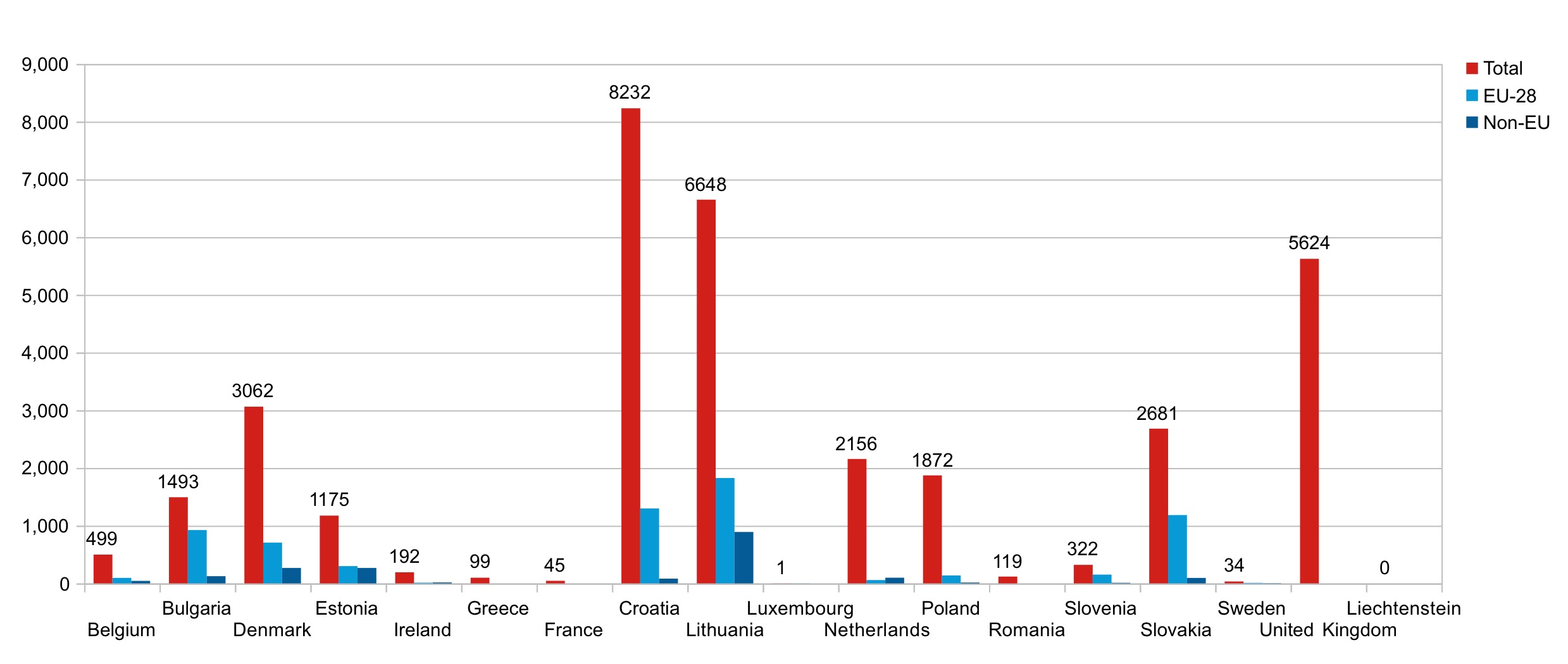Loss of citizenship means ceasing to be a citizen of a country under the nationality law of that country. There are two categories of grounds for loss of citizenship.
- Involuntary loss may occur due to either automatic lapse of citizenship from the citizen for failure to take some action to retain citizenship, or active withdrawal of citizenship by the country.
- Voluntary loss, often called “relinquishment” or “renunciation”, is initiated by the citizen.
The EUDO Citizenship Observatory, in a study of the nationality laws of thirty-three European countries, found 15 broadly-defined cases in which citizenship can be lost.
- Voluntary acquisition of another citizenship
- Residing abroad on a permanent basis
- Fraud in the naturalisation process, including sham marriages, or failure to give up the other citizenship in countries which require that as a condition of naturalisation
- Serving in a foreign military or foreign government
- Upon adoption by a foreign citizen, or other change in the child’s legal relation to the parents such as annulment of maternity/paternity
- For minors, upon the loss of citizenship by the parents
- Failure to fulfill conditions, for example in Japan, where Japanese children born with an additional citizenship lose Japanese citizenship if they fail to give up the other citizenship before the age of 22
- Voluntary renunciation
Denaturalization is the reverse of naturalization, when a state deprives one of its citizens of his or her citizenship.
According to the Eurostat report, between 2008 and 2017, a total of 34,254 persons have lost their EU citizenship in member states.
- 19.5% of those lost their citizenship are from EU reporting country
- Only a small portion of 5% are non-EU nationals who lost their citizenship in EU member state
- Croatia, Lithuania and UK are the top 3 countries where most citizenships have been lost in the EU
- 126 people have lost their citizenship in Denmark and Lithuania as reporting country stateless.
- Large number of russians have lost their citizenship in Lithuania
- UK nationals have lost their citizenship in Lithuania and Slovakia
- Chinese (incl HK) have lost their citizenship in Denmark and in Netherlands
- Americans have lost their citizenship in Lithuania and Ireland


Download
- Loss of citizenship in total – pdf
By reporting country
Citizenship and nationality
The terms ‘citizenship’ and ‘nationality’ are often used interchangeably to denote the legal bond between an individual and a state. While ‘nationality” is the preferred legal term, ‘citizenship’ is used more broadly to describe the rights, duties, and practices linked to this formal status. In certain contexts, the term ‘nationality’ also denotes belonging to a national or ethnic community.
According to EU report on loss of citizenship
- All EU countries, except for Croatia, Poland and Sweden, provide for the withdrawal of citizenship in cases of discovered fraud in the acquisition of citizenship (see Figure 5).
- In 12 EU countries, persons can be deprived of citizenship if they take service in a foreign army.
- Prolonged residence abroad is grounds for the involuntary loss of citizenship in 10 EU countries. However, in Cyprus, Ireland and Malta, this applies only to naturalised citizens, whereas in Belgium, Denmark, Spain and Sweden it only concerns citizens who were born abroad.
- The acquisition of another citizenship can lead to the withdrawal of citizenship in nine EU countries: Austria, Estonia, Germany, Ireland, Latvia, Lithuania, the Netherlands, Slovakia and Spain.
- In 15 EU countries, citizenship can be revoked on grounds of treason or disloyalty. The actions covered by these grounds include: committing serious crimes against the country (Belgium, Bulgaria, Denmark and the Netherlands); acting against a country’s constitutional order and institutions (Denmark, Estonia, France, Latvia and Lithuania); showing disloyalty by act or speech (Cyprus, Malta and Ireland); and, more generally, acting against national interests (Greece, France, Romania, Slovenia and the UK). In Belgium, Bulgaria, Cyprus, Estonia, France, Ireland, Lithuania and Malta, these grounds for revocation apply only to naturalised citizens.
- Involvement in terrorist activities are explicitly mentioned as reasons for withdrawal of citizenship in France and the Netherlands.





